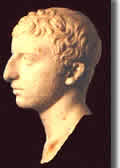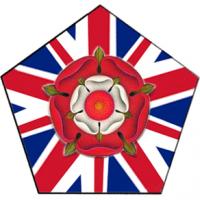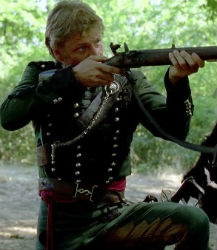2

















| Thumbs Up |
| Received: 1,296 Given: 3,160 |

I came across two interesting maps in this article (about whether Londoners see themselves as English or just British). The first shows the amount of people that identified as English (I'm not sure what the question was, whether they see themselves solely as English or more likely as British and English). The second one is the amount percentage of people that identified as "Celtic" - so probably Irish, Scottish, Welsh, Cornish and Manx and perhaps some oddballs from England.
Quite interesting that the East coast and East Midlands identify as English the most. The home counties and some of the cities that identify as less English could be due to a combination of the English there seeing themselves as just British plus those that are of mixed British Islander backgrounds not identifiying as English. Obviously immigrants will usually not think of themselves as English either, but English identity among the English themselves must be weakest in these areas. I'm actually surprised about how English Cornwall is though. It may be due to retirees moving there and the long established English population in the east.
Despite a fruitcake website I encountered today about Devon ("Dewnans") and Cornwall being Celtic kin, it seems most Devonians see themselves as English judging by both maps, and very much so.
The Welsh minority in the Welsh Marches is hardly surprising, nor is the Scottish one in Carlisle. But there is an odd band across England to London. London itself has drawn people from Ireland, Scotland, Wales and Cornwall naturally. But the band stretching to Wales might be Welsh settlement along the M4 and it looks as if the Welsh are following it out of Wales and to England. Only 20% of Cornwall identifying as Celtic is strange though unless they conducted the survey indiscriminately in tourist season. Again though one notices the lack of Celts on the east coast.




















| Thumbs Up |
| Received: 14,012 Given: 11,416 |

Interesting. In the first map immigration patterns are clear (as is the lack of assimilation of those immigrants).
Spoiler!














| Thumbs Up |
| Received: 4 Given: 0 |

According to a genetic study I read about, the English have relatively little Anglo-Saxon blood (let alone Viking, Norman etc). They are primarily descended from the ancient Britons, the indigenous population. This would indicate that the idea of a 'Germanic' England and 'Celtic fringes' is a bit of a myth....
http://news.nationalgeographic.co.uk...itishgene.html
What happened in Post-Roman Britain, in the region that became England, appears to have been more of a cultural overlay, rather than a mass setlement and population replacement. The natives weren't driven out.Despite invasions by Saxons, Romans, Vikings, Normans, and others, the genetic makeup of today's white Britons is much the same as it was 12,000 ago, a new book claims.
In The Tribes of Britain, archaeologist David Miles says around 80 percent of the genetic characteristics of most white Britons have been passed down from a few thousand Ice Age hunters.
Miles, research fellow at the Institute of Archaeology in Oxford, England, says recent genetic and archaeological evidence puts a new perspective on the history of the British people.
"There's been a lot of arguing over the last ten years, but it's now more or less agreed that about 80 percent of Britons' genes come from hunter-gatherers who came in immediately after the Ice Age," Miles said.















| Thumbs Up |
| Received: 1,296 Given: 3,160 |


















| Thumbs Up |
| Received: 5,954 Given: 11,022 |

Indeed. I made pie charts of data surrounding different sub-groups of R1b recently, and another person put them on a map for ease of sight. Much of lowland Britain looks similar to the Norwegian and Danish distribution but with Brythonic and Gaulish input (it looks like lowland Britain was somewhat transitional between highland Britain and Gaul. Although the Netherlands and Frisia represents a local peak in R1b-U106, so it looks pretty different even from other Germanic areas. Also note the Germanic input (small but significant) in northern France, and the similarity of North-west France to Ireland (It looks like a group of Irish with significant Gaulish input almost).
Also note that many of these areas of lowland Britain have much less R1b than the other parts of Britain. It's definitely a melting pot, but a predominantly Germanic one, with earlier Gaulish and Brittonic elements in it, and probably later Norman elements too wouldn't surprise me.
I'd ignore the chart for south Wales though, it has only 9 samples. Although I would expect U106 to be a bit higher here due to English and Flemish input.



















| Thumbs Up |
| Received: 5,954 Given: 11,022 |

Fascinating how it actually follows the least/most Celtic areas, with a couple of exceptions.















| Thumbs Up |
| Received: 1,296 Given: 3,160 |

Very nice map, but do refrain from using their [the multiculturalists] defiled term. I've always wondered how to overlay things in Google maps. That U152 in Aberdeenshire is odd. Maybe some French or Normans settled there? Or Picts could have been from somewhere in Gaul, although I personally placed their origins in Norway or Denmark.


















| Thumbs Up |
| Received: 5,954 Given: 11,022 |

Well I use that term because it is somewhat appropriate (although all the ethnic groups involved are pretty similar). I suppose I could say that part of Britain is the most popular part, instead.
Yeah I think the U152 in North-East Scotland might be a bit of anomaly. There was around 40 samples from there I think, so it may be due to low sampling. No doubt they have it though. It could be a survival of eastern Britain, however. I'm pretty sure that L21 was only a bit more common than U152 and P312 xL21 xU152, probably around 40-50% while U152 and P312 were likely both over 20% each.















| Thumbs Up |
| Received: 1,296 Given: 3,160 |

But it's a bad term for Britain. A melting pot - yes, perhaps compared to Ireland, but almost every country on the continent apart from a few isolated odd ones like Finland, the Baltics and the Basques will be much more worthy of the term "melting pot" than anywhere in Britain. They've seen many more migrations and settlements than we have, all we are is basically a few different waves of Celts and Germanics. It's only a suitable term use in a British context, so probably not very suitable then because our history relates directly to that of NW Europe.
It has too much baggage attached to it and has been used as a term by too many multiculturalists, too many ill educated morons referring to us as a melting pot of "Ancient Britons [Celts], Romans*, Anglo-Saxons, Normans*, Hugenots* and Flemish* - basically any migrants they can add in there, the ones marked by *being negligible except in a few odd areas like Little England beyond Wales. The actual largest parts of our ancestry - Anglo-Saxons and Celts are treated on a par with the others when they by far outweigh them whilst ones like Romans are exaggerated and we're basically meant to believe that we're some melting pot like France (that actually is a better example of a European melting pot).
Vikings and Anglo-Saxons are treated separately despite them having more in common with each other than the "Celts" (Gaels and Brythons) of these islands typically did with each other but yet still only warrant one term (probably the post-WWI / II anti-Germanic bias is still at play. Anglo-Saxon isn't a dirty word any more, but "Germanics" has only just started reappearing in publications).


















| Thumbs Up |
| Received: 5,954 Given: 11,022 |
There are currently 1 users browsing this thread. (0 members and 1 guests)
 England
England
 England
England
Bookmarks